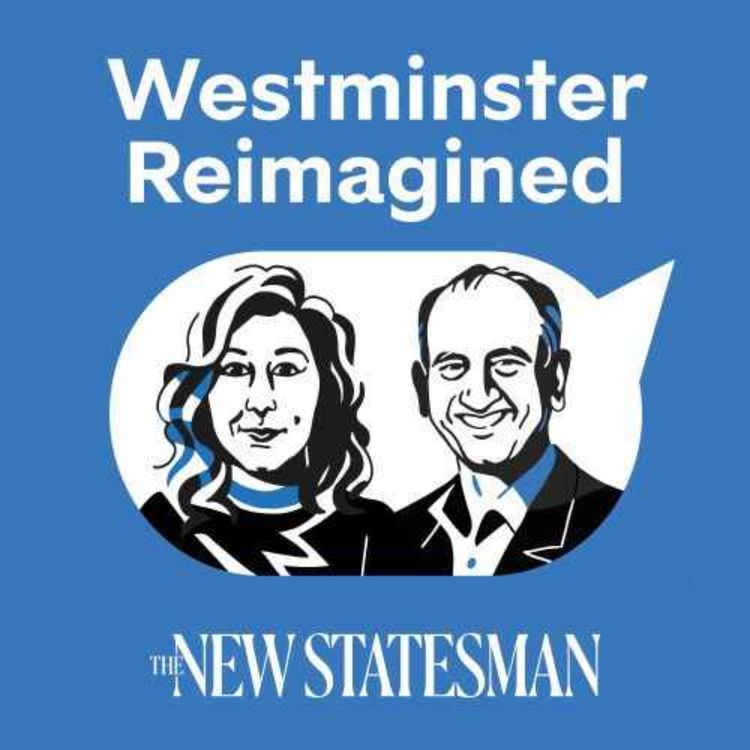Share

Daily Politics from the New Statesman
Why don't politicians care about happiness? With Richard Layard and Armando Iannucci | Westminster Reimagined
Thurrock is suffering major cuts to all its council services since it went effectively bankrupt last December, after hundreds of millions of pounds were put into risky investments that didn’t pay off. One of the services to be gravely affected by the cuts is a place called “Thameside”, an arts complex, described locally as a “mini Barbican”, which houses a theatre, library, archive and museum.
Places like Thameside often serve as the heart and soul of our communities. They bring people together, foster a sense of belonging, and contribute to our overall well-being. But what happens when these vital services face budget cuts?
In this episode of Westminster Reimagined we discuss The Good Life - how much value do we put on happiness in Britain? How can government policy boost happiness? And is it possible to quantify personal wellbeing?
Listen to all previous episodes of Westminster Reimagined here: https://podfollow.com/westminster-reimagined-with-armando-iannucci-the-new-statesman
Download the app:
iOS: https://apps.apple.com/gb/app/new-statesman-magazine/id610498525
Android: https://play.google.com/store/apps/details?id=com.progressivemediagroup.newstatesman&hl=en_GB&gl=US
Subscribe to the New Statesman WhatsApp channel:
https://whatsapp.com/channel/0029Va9latS0wajogms2z02c
Sign up to our daily politics email:
https://morningcall.substack.com/
SAVE £££ THIS CHRISTMAS:
⭐️ Gift big ideas, bold politics, and proper journalism from just £2
LISTEN AD-FREE:
📱Download the New Statesman app
MORE FROM THE NEW STATESMAN:
❓ Ask a question – we answer them every Friday
⏰ Get our daily politics newsletter every morning
✍️ Enjoy the best of our writing via email every Saturday
More episodes
View all episodes

Andrew arrested
28:20|The King’s brother, Andrew Mountbatten-Windsor, has been arrested.The alleged offence: misconduct in public office. The arrest came after claims Andrew allegedly shared official documents during his time as UK Trade Envoy, with two emails in particular showing up in the latest Epstein files – although police haven’t yet released the specifics of their investigation.Police have searched Andrew’s homes, and at the time of recording the former Prince is in custody. He’s not yet been charged, and has previously – strenuously – denied any wrongdoing on these matters related to Epstein. The King has said “the law must take its course”. Oli Dugmore is joined by Will Lloyd in the studio.
Is Bridget Phillipson really the most dangerous woman in Britain?
36:02|From “Nazi” to “Marxist” Bridget Phillipson, the education secretary, has faced intense criticism from all sides.But how exactly is she trying to reform the British education system? For the cover of this week’s New Statesman magazine, our executive editor Pippa Bailey has written an extended profile of Phillipson - exploring what motivates the education secretary, and how consequential the next few months could be for her - and the Labour Party.She joins Oli Dugmore in the studio.📚 READ: https://www.newstatesman.com/cover-story/2026/02/is-bridget-phillipson-the-most-dangerous-woman-in-britain
Has Starmer killed Welsh Labour?
27:29|Eluned Morgan, the first minister of Wales speaks to Megan Kenyon about her relationship with Keir Starmer, Welsh Labour’s prospects in the upcoming Senedd election and the threat of Plaid Cymru and Reform.
Should we ban social media for under-16s?
32:05|Will Keir Starmer ban kids from social media?Subscribe on YouTube: https://www.youtube.com/channel/UC2DHAQOeEg-Z-4trARDXHRA?sub_confirmation=1The PM has promised a crackdown on social media and said he’s “open-minded” to a full on, Australia-style ban for under 16s. Oli Dugmore is joined by senior editor George Eaton.
The Labour Party's "unpopularity contest"
33:23|Labour’s unpopularity contest, the joys of figure skating and bonkers advice from RFK Jr's nutrition chatbot.Anoosh Chakelian and Will Dunn explore the most ludicrous and laughable stories of the week.Including calls for Britain to set up a “Ministry of Sex”...
£100k salary, feeling poor – is tax killing ambition?
24:24|A listener paying 67% in tax asks if Labour are destroying UK productivity. From the new and improved New Statesman podcast studio, Anoosh and Rachel answer listener questions on tax, student loans and Nigel Farage MP's second (and third, and fourth) jobs.In the mailbag this week:A listener earning over £100,000 writes in to ask why the government is failing to address the "tax trap" that means high-earning parents are "penalised".Would the British public back student loan forgiveness?And why can Nigel Farage and other parliamentarians present TV shows, run consultancies, and earn money on the side of their MP job?
Exclusive investigation: England's maternity scandal
27:50|55 babies died at the University Hospitals Sussex NHS Foundation Trust between 2019 and 2023 that may have survived with better care. The New Statesman's investigations editor Hannah Barnes joins Anoosh Chakelian to explore the findings of her investigation.
Is the Labour party having an ideological crisis?
28:43|Morgan McSweeney – Keir Starmer’s closest aide and confidante – has left the Number 10 operation.Our editor-in-chief Tom McTague asks, is it the beginning of the end for the Prime Minister – or the end of the beginning?He speaks to deputy editor Will Lloyd.
Keir Starmer is safe - but for how long?
27:49|For days and weeks Westminster has been quivering with anticipation at the prospect of yet another prime ministerial resignation and leadership election.But following the resignation of Chief of Staff Morgan McSweeney in the wake of the Mandelson scandal, MPs appear to have closed ranks, rallying around Keir Starmer.So, no leadership election, at least for now. But are his supportive MPs shoring up the PM - or just biding their time?And can British politics ever break its addiction to psychodrama?